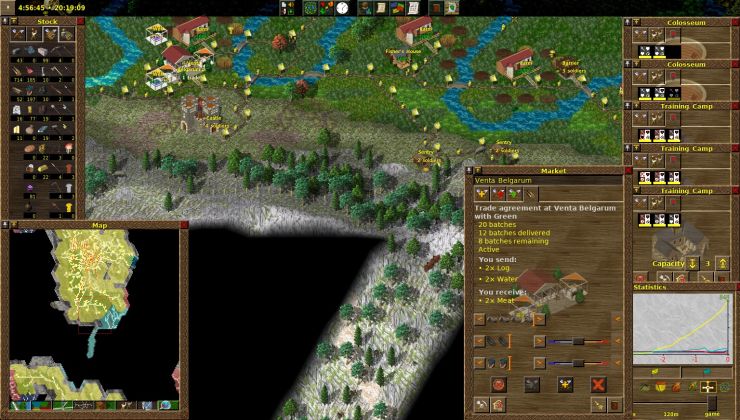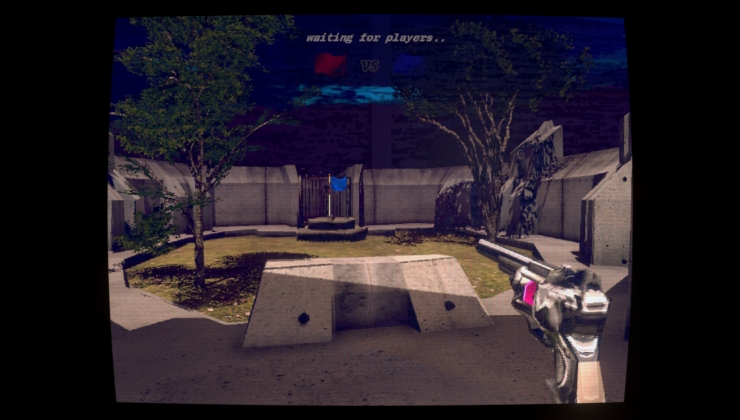NoiseTorch, a popular real-time microphone noise suppression app recently had a possible security issue but it's been reviewed thoroughly and it's back.
"NoiseTorch is an easy to use open source application for Linux with PulseAudio or PipeWire. It creates a virtual microphone that suppresses noise, in any application. Use whichever conferencing or VOIP application you like and simply select the NoiseTorch Virtual Microphone as input to torch the sound of your mechanical keyboard, computer fans, trains and the likes."
In the new version 0.12.0 they completed a review of the code, and no issue was found. To help against any future issues, they're no longer using a separate update server and instead they will be using GitHub releases so it's all more transparent. For added security, they're also now using more GitHub features to validate the code too.
On top of that the new release also has some code cleanups, and the actual filtering status will be clearer now so it should give a better user experience.
Nice though how the community came together on this
Quoting: BumadarThat was fast, when I read it here and checked out there forum it was pretty much doom and gloom, the programmer was ready to stop.Note the original author does not endorse the project revival, see https://github.com/noisetorch/NoiseTorch/issues/328#issuecomment-1152801922 :
I disagree strongly with how it is currently being run, but i'm still not interested in maintaining the current version. As long as some people want to maintain it, that's fine. Find a new name please.
Quoting: lawlDistro-specific patches are very common and pretty much necessary for distributions to, well, essentially work as intended.Quoting: principisBesides, that's a very annoying clause ["Modified versions may not be conveyed to others under same name as the original program"] to have... It makes it impossible for packagers to apply distro-specific patches.Good. You got the point of the clause.
Quoting: DrMcCoyAyyyy, okay, I strongly disagree with that:Yeah, it feels like sour-grapes when I read those messages on the Github. Very much a "that's my football, and you're not playing with it" attitude. If Lawl wanted to keep the name, he should have kept his repo up, let the team fork it as Noisetorch-next, and that would be that. But he didn't - he pushed the whole lot into the group's new organisation, then when he didn't like the ideas they had for it, changed the license and is now throwing a hissy fit over the name?
Quoting: lawlDistro-specific patches are very common and pretty much necessary for distributions to, well, essentially work as intended.Quoting: principisBesides, that's a very annoying clause ["Modified versions may not be conveyed to others under same name as the original program"] to have... It makes it impossible for packagers to apply distro-specific patches.Good. You got the point of the clause.
There must be something else going on behind the scenes to drive that behaviour, but I don't know what it is.
Quoting: Nic264Bah, I just read through that whole post, why do things always go uglyQuoting: BumadarThat was fast, when I read it here and checked out there forum it was pretty much doom and gloom, the programmer was ready to stop.Note the original author does not endorse the project revival, see https://github.com/noisetorch/NoiseTorch/issues/328#issuecomment-1152801922 :
I disagree strongly with how it is currently being run, but i'm still not interested in maintaining the current version. As long as some people want to maintain it, that's fine. Find a new name please.
Quoting: scaineIt's a popular application, so there may be monetary value in the name.Quoting: DrMcCoyAyyyy, okay, I strongly disagree with that:Yeah, it feels like sour-grapes when I read those messages on the Github. Very much a "that's my football, and you're not playing with it" attitude. If Lawl wanted to keep the name, he should have kept his repo up, let the team fork it as Noisetorch-next, and that would be that. But he didn't - he pushed the whole lot into the group's new organisation, then when he didn't like the ideas they had for it, changed the license and is now throwing a hissy fit over the name?
Quoting: lawlDistro-specific patches are very common and pretty much necessary for distributions to, well, essentially work as intended.Quoting: principisBesides, that's a very annoying clause ["Modified versions may not be conveyed to others under same name as the original program"] to have... It makes it impossible for packagers to apply distro-specific patches.Good. You got the point of the clause.
There must be something else going on behind the scenes to drive that behaviour, but I don't know what it is.
I don't see much of a practical problem with the request itself; rename it to LibreNT and be done with it.
It's the heavy handed way in which the original dev seems to want to try to enforce a name change, after essentially handing off the name to a new team, that is the bigger issue here. A bit of a d..k move and legally dubious, imo.
Last edited by emphy on 13 Jun 2022 at 7:41 pm UTC
Coders can be absolute drama queens, though, especially about hobby projects, so this really isn't surprising me much.
In the end, a name's just a name, though. I don't know if they HAVE to change it (I doubt it, given the history), but I don't see too much harm in them doing that.
PS: Why would you disallow distro-specific patches?
Some weird ideal that all distros should be identical?
Seems entirely counter-productive.
Quoting: DrMcCoyAyyyy, okay, I strongly disagree with that:That doesn't mean distros should keep the same name, after all it's not the same software anymore but a derivative, even if it's only small patches.
Quoting: lawlDistro-specific patches are very common and pretty much necessary for distributions to, well, essentially work as intended.Quoting: principisBesides, that's a very annoying clause ["Modified versions may not be conveyed to others under same name as the original program"] to have... It makes it impossible for packagers to apply distro-specific patches.Good. You got the point of the clause.
That works well for Firefox for Android for instance:
* if it says « Firefox for Android », you know it's the official binary from Mozilla and the only people you have to go to for support
* if it says « Fennec F-Droid », then it's not officially supported by Mozilla so you should first try and reproduce issues with the official distribution before reaching to them
That seems to be the model that the original author wanted [more than a year ago](https://github.com/noisetorch/NoiseTorch/commit/8b054c20a909c9cc459e87ee8b56226c0428201b) already, it's just too bad they didn't make it clearer earlier when handing the project over.
Quoting: Nic264That doesn't mean distros should keep the same name, after all it's not the same software anymore but a derivative, even if it's only small patches.Let me give you some perspective here: there's literally barely any package at all in any distribution that doesn't have a single patch applied. Name me any program, I'll tell you that it'll have a dozen patches applied on Debian or Gentoo.
There's multiple reasons for that, all of which I have personally seen:
- Upstream might be dead, but the program still has a large user base
- A security patch needs to be applied STAT
- The distribution has a different or novel strategy to handle multiarch, so libraries need to be installed somewhere different
- The build files install support files wrongly and doesn't care
- The project fails to compile with a certain compiler version. Very common on Gentoo
- The project never considered you might want to install different versions at the same time
- The project doesn't work correctly with a certain library version
- The project doesn't work correctly with a certain combination of libraries
Some of those you'd want to push upstream, but it might take a while until they react. Some of those you don't, like when your distribution handles things differently.
If all of these would mean you'd need to rename the package, no distribution at all would have a Firefox, GNOME, KDE, LibreOffice, etc. None of the names you'd expect on a system would exist.
Quoting: DrMcCoyI'm not arguing about the usefulness of distro-specific patches, I know they are often required to get the software to build, run or be well-integrated with the rest of the system.Quoting: Nic264That doesn't mean distros should keep the same name, after all it's not the same software anymore but a derivative, even if it's only small patches.Let me give you some perspective here: there's literally barely any package at all in any distribution that doesn't have a single patch applied. Name me any program, I'll tell you that it'll have a dozen patches applied on Debian or Gentoo.
There's multiple reasons for that, all of which I have personally seen:
- Upstream might be dead, but the program still has a large user base
- A security patch needs to be applied STAT
- The distribution has a different or novel strategy to handle multiarch, so libraries need to be installed somewhere different
- The build files install support files wrongly and doesn't care
- The project fails to compile with a certain compiler version. Very common on Gentoo
- The project never considered you might want to install different versions at the same time
- The project doesn't work correctly with a certain library version
- The project doesn't work correctly with a certain combination of libraries
Some of those you'd want to push upstream, but it might take a while until they react. Some of those you don't, like when your distribution handles things differently.
All I'm saying is if the authors ask for something like changing the name for modified version, 3rdparty packagers should just respect those wishes. All it takes is just another distro-specific patch after all (half-sarcasm).
Quoting: DrMcCoyIf all of these would mean you'd need to rename the package, no distribution at all would have a Firefox, GNOME, KDE, LibreOffice, etc. None of the names you'd expect on a system would exist.Hey Firefox was my example first! It requires an [explicit written permission from Mozilla](https://www.mozilla.org/en-US/foundation/trademarks/distribution-policy/) to keep the name Firefox in patched 3rd-party packages. Again, see [“Fennec F-Droid” in F-Droid](https://f-droid.org/en/packages/org.mozilla.fennec_fdroid/). It was also rebranded as [IceWeasel](https://en.wikipedia.org/wiki/Mozilla_software_rebranded_by_Debian) in Debian between 2006 and 2017.
Let's also not forget about Google Chrome/Chromium, Visual Studio Code/VSCodium/“Code - OSS” and others.
I'm not saying that's the kind of thing I want as a user, but it makes sense to me that original name = software that's officially endorsed and supported by the authors.
The relationship between developers and packagers is often complicated… So I'll leave you with [this example from KDE](https://phabricator.kde.org/T9585) where the author of Okteta opposes a Microsoft Store publication, and his wish is actually respected by the packagers! 🤯
Quoting: Nic264It was also rebranded as [IceWeasel](https://en.wikipedia.org/wiki/Mozilla_software_rebranded_by_Debian) in Debian between 2006 and 2017.And remember how much of a kerfuffle that caused. But even so, from what Dr. McCoy is saying I suspect there are many more lightly patched versions of Firefox where the patches are sufficiently small that nobody ever commented. But if you had a hard and fast rule, where any patch = rename, you would instead have had three dozen different Firefoxes.











 How to setup OpenMW for modern Morrowind on Linux / SteamOS and Steam Deck
How to setup OpenMW for modern Morrowind on Linux / SteamOS and Steam Deck How to install Hollow Knight: Silksong mods on Linux, SteamOS and Steam Deck
How to install Hollow Knight: Silksong mods on Linux, SteamOS and Steam Deck